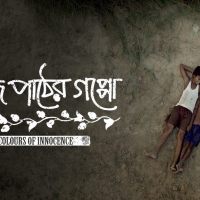Animal – A Cinematic Temper Tantrum with a Dull Roar
Animal, directed by Sandeep Reddy Vanga, is a film that struggles to find its footing, caught between excessive violence and an attempt at giving the middle finger to “woke feminists”. The narrative follows Ranbir Kapoor as Ranvijay, a character defined more by his uncontrollable rage than any compelling depth. The film unfolds in a series of flashbacks, with a confusing and unnecessary framing device set in the year 2056, serving little purpose other than to add an extra layer of complexity.
The movie revolves around the strained relationship between Ranvijay and his father Balbir, played by Anil Kapoor, who is preoccupied with his business empire. The character dynamics are poorly developed, with Balbir’s reactions to his son’s violent behavior coming off as inconsistent and unconvincing.
The film’s screenplay relies heavily on shock value, presenting gory and violent sequences without much narrative justification. Unlike other films that use violence as a means to explore masculinity and societal pressures, Animal seems to revel in violence for its own sake. The protagonist’s actions, including mass murder, lack any legal consequences in a world where the ultra-rich can apparently get away with anything.
Ranbir Kapoor’s performance, while intense, fails to add depth to his character, who remains consistently angry from start to finish. The attempt to subvert expectations by presenting a different side of the actor falls flat, as the film merely reinforces stereotypes and toxic masculinity.
The treatment of women in the film is a point of contention, with the narrative seemingly baiting audiences into debates about feminism. The movie’s attempt to address misogyny through a reversal of roles feels forced and fails to contribute meaningfully to any larger discussion. The film’s embrace of provocative sexism, coupled with gratuitous scenes of violence, creates a disconcerting viewing experience.
Animal’s narrative lacks finesse, with episodic storytelling that fails to build to any meaningful climax. The film sacrifices cinematic craftsmanship for flashy scenes and bombastic moments, leaving the audience with a sense of emptiness after its 201-minute runtime.
While the technical aspects of the film, including cinematography and background scoring, are commendable, they are overshadowed by the overall lack of substance in the storytelling. Animal exists in a reality that is neither convincingly realistic nor fully fantastical, making it challenging for viewers to engage with the narrative on any meaningful level.
In the end, Animal may succeed in provoking reactions and discussions, but it does so at the expense of coherent storytelling and character development. The film’s reliance on shock value and its questionable portrayal of relationships and societal issues raise concerns about the direction of Hindi cinema in 2023. As the film generates buzz, one must question whether the industry is taking responsibility for the impact of such narratives on the audience.
DISCLAIMER: All Images Used In This Post Have Their Respective Copyrights








